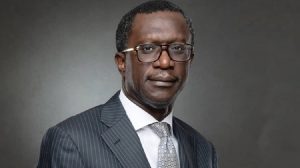
The International Monetary Bank (IMF) and World Bank have reiterated their commitment to providing for developing countries as they struggle with the challenge of climate change, debt challenge, and digital transition.
In a joint statement signed by the Bretton Woods institutions , the organisation said the world faces unprecedented challenges and a rapidly changing economic environment and that a succession of shocks has weakened the global economic outlook and left many countries vulnerable.
“And this is happening as countries are confronting the green and digital transitions. Fragmentation adds to the challenge… The IMF and the World Bank with their expansive expertise and global membership, have a pivotal role in supporting countries through these challenging and transformational times.
“In this context, the IMF Managing Director and the World Bank President today announced their intention to intensify their institutions’ collaboration in three key areas: climate change, debt and digital transition.
They will also continue to coordinate closely on providing developing countries with financial and policy support,” the statement said.
In the statement, Managing Director of the IMF, Kristalina Georgieva, and President of the World Bank, Ajay Banga, pledged that the two organisations would continue to work together to support a struggling world to adapt to climate change, manage debt crisis, and adopt digital transition.
“The Bank and the Fund have long worked closely together on debt challenges, both in operational work in individual countries and at the global level. The current context of elevated debt vulnerabilities gives renewed urgency to intensified collaboration, building, and leveraging on our respective areas of expertise.
We will enhance our joint work to help prevent further build-up of debt vulnerabilities, assisting countries to strengthen debt management and transparency and public finances, while improving the joint Low-Income Country Debt Sustainability Framework to better account for current challenges.
“We will also deepen our support to creditors and debtors engaged in a debt restructuring and will work further with our partners to improve restructuring processes, including under the Common Framework, building on the work we launched at the Global Sovereign Debt Roundtable,” they stated.
They noted that the world confronts major transformational challenges and more frequent shocks at a time of rising economic and geopolitical tensions are escalating.
“Growth in the world economy has slowed, with the medium-term outlook at its weakest in over three decades. Progress in poverty reduction has come to a halt. Conflict and fragility are on the rise.
The world is facing geoeconomic fragmentation, extreme natural disasters exacerbated by climate change, and increasing levels of public debt. Rapid digitalization and technological transformations create new challenges, but also opportunities.
With well-designed and appropriately sequenced reforms, the digital and green transitions can bring tremendous economic, social, and environmental gains, and add to welfare and prosperity,” the statement pointed out.
The leaders pledged to further strengthen coordination and focus on results while regular meetings of the new Bank-Fund Climate Advisory Group are formalised.






